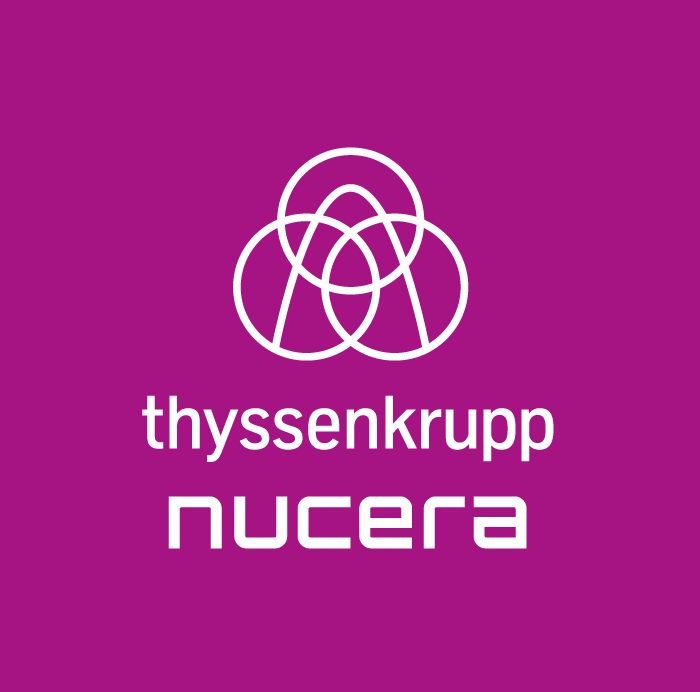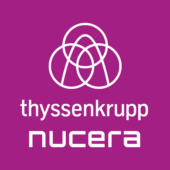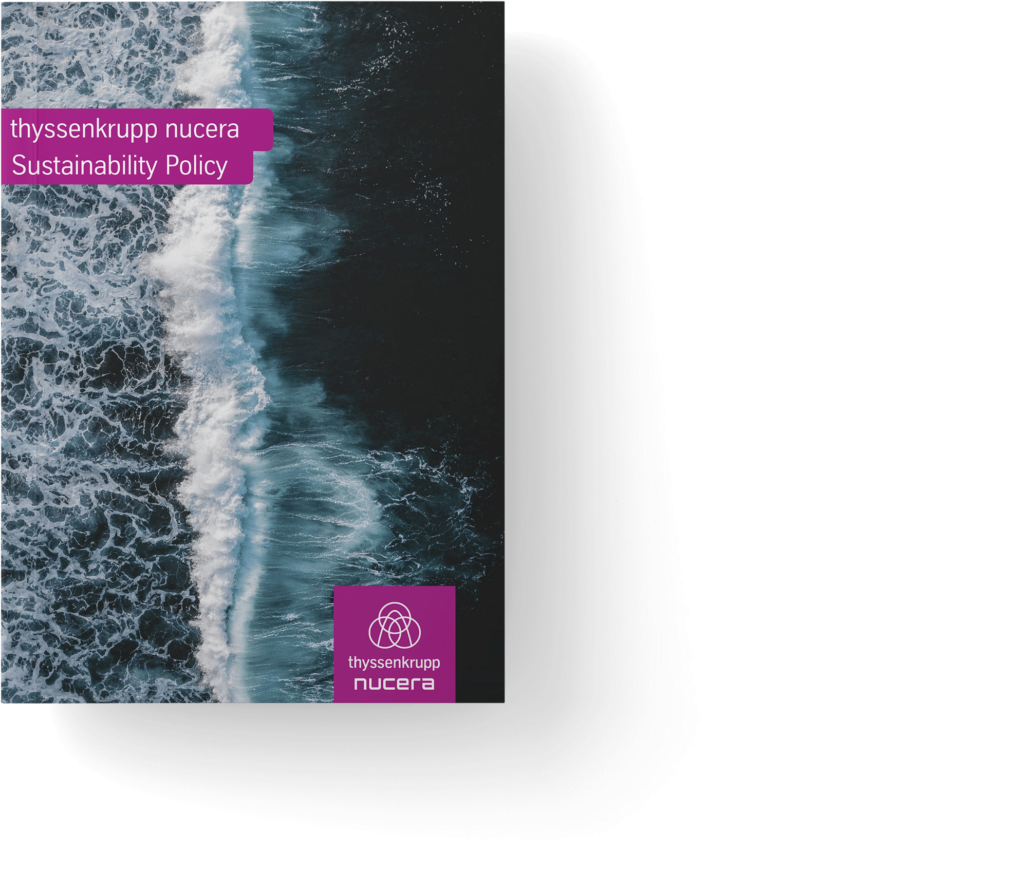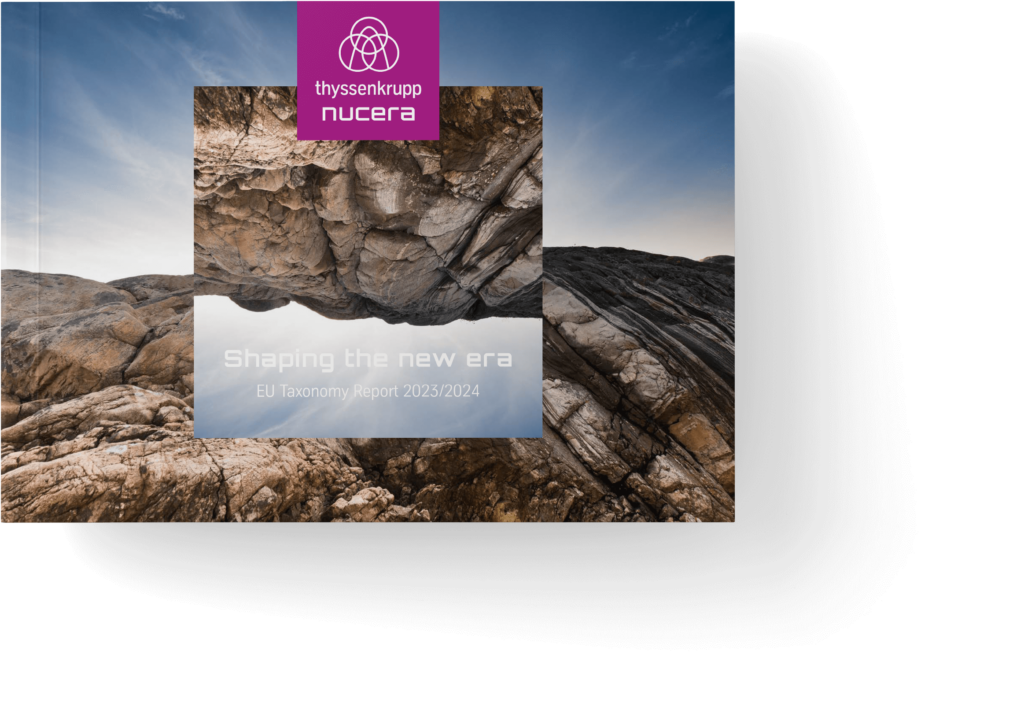Sustainability
As we navigate a rapidly evolving global landscape, our commitment to ESG remains resolute. Given the macroeconomic and geopolitical challenges, we also see this as an opportunity for innovation, collaboration, and the creation of positive change. When developing our sustainability strategy, we relied on a materiality analysis involving our relevant stakeholders, which helped us to develop a good understanding of which material ESG issues we should focus on. We also created a sustainability vision and mission, defined areas of action, ambition levels, targets & KPIs and derived measures for implementing the sustainability strategy.
Mission

Vision

Purpose


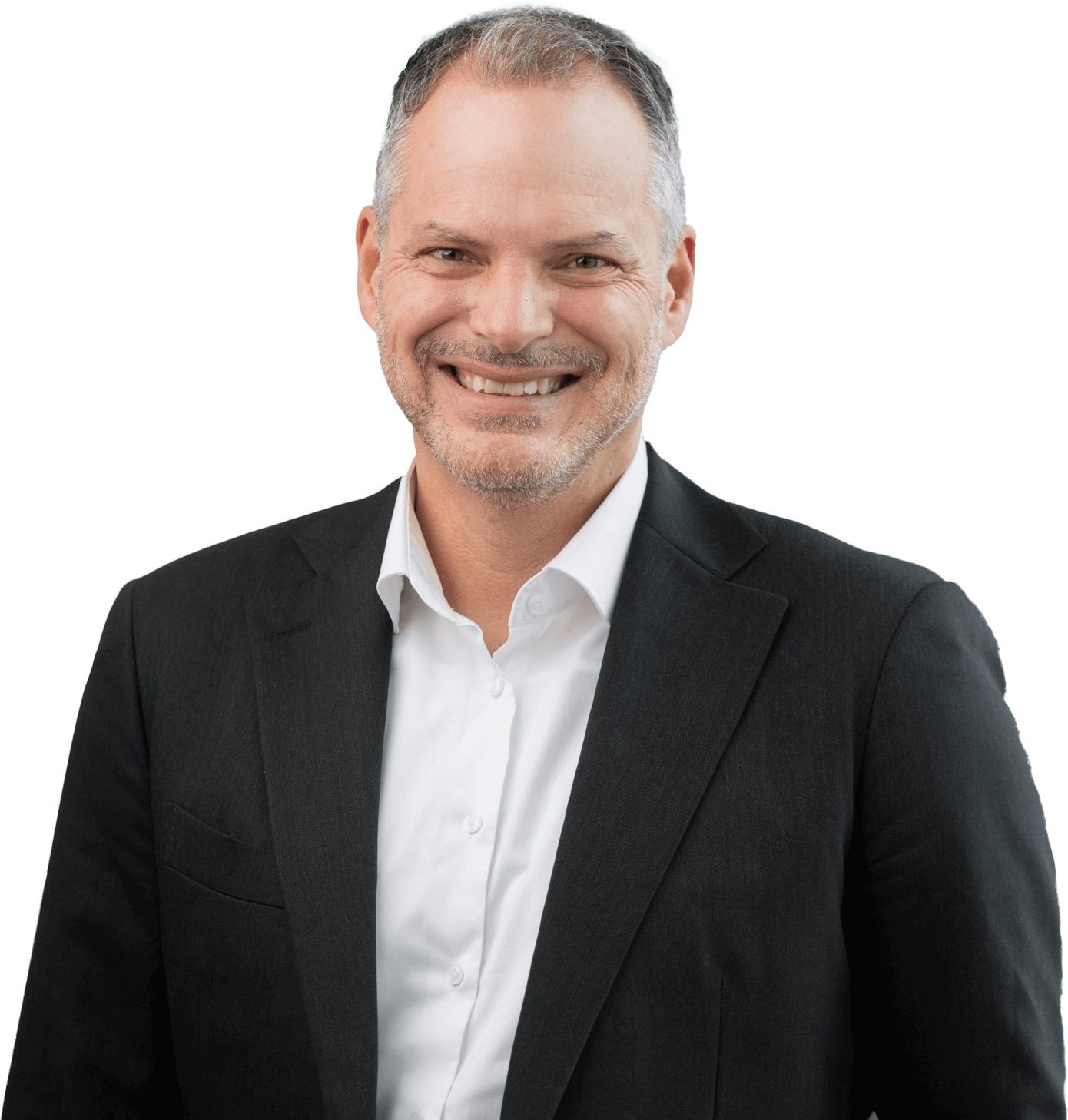
"For us at thyssenkrupp nucera®, there is no alternative to a responsible and sustainable business approach. It corresponds to our full conviction. By acting sustainably, we make a decisive contribution to society and long-term value creation. Our social responsibility and relevance are therefore much more than our technology for producing green hydrogen."
Werner Ponikwar, Chief Executive Officer
thyssenkrupp nucera
"As a supplier of electrolysis technologies, we contribute to changing the emissions balance of energy-intensive industries as a key instrument in achieving the climate targets. Sustainability is now being placed at the center of our strategies, with the ambitious goal of succeeding in creating an environmentally friendly hydrogen economy powered entirely by renewable energy."
Tuğçe Uysal, Head of ESG & Sustainability
thyssenkrupp nucera


"For us at thyssenkrupp nucera, there is no alternative to a responsible and sustainable business approach. It corresponds to our full conviction. By acting sustainably, we make a decisive contribution to society and long-term value creation. Our social responsibility and relevance are therefore much more than our technology for producing green hydrogen."
Werner Ponikwar, Chief Executive Officer
thyssenkrupp nucera
Key Non-Financial Performance Indicators
| Kategorie |
KPI |
|
Target |
|---|---|---|---|
| Scope 1 emissions [tCO2e¹] Scope 2 emissions [tCO2e¹] Scope 3 emissions [tCO2e¹] |
Scope 1: 286 tCO2e¹ Scope 2 (Location-Based): 561 tCO2e¹ Scope 3: 148.10 million tCO2e¹ (up- and downstream² in total) |
Scope 1+2 net zero³ by 2030 Scope 3 net zero³ by 2050 |
|
|
Selected suppliers signed code of conduct [%] High risk supplier reduction [%] |
Selected: 84% |
Selected: 97% by FY 24/25 High risk: 54% by FY 24/25 |
|
| Proportion of women in leading positions [%] | Proportion: ~17% |
25% of management positions in German office with women by 2028 Global extension of KPI under review |
¹ CO2e = CO2-equivalents
² 3.1 Purchased Goods and Services, 3.2 Capital Goods, 3.3 Fuel- and Energy-Related Activities, 3.4 Upstream Transportation and Distribution, 3.5 Waste Generated in Operations, 3.6 Business Travel, 3.7 Employee Commuting, 3.11 Use of Sold Products
³ We have committed to reach net zero greenhouse gas emissions across the value chain by 2050, meaning we will reduce our Scope 1 and 2 emissions by 100% in 2030 and scope 3 emissions by 100% in 2050. Scope 1 refers to greenhouse gas emissions that come from sources thyssenkrupp nucera directly controls, e.g., emissions from on-site vehicles. Scope 2 refers to indirect greenhouse gas emissions caused by purchased electricity, heat or steam for our headquarters, offices and other owned and operated facilities. Scope 3 covers other indirect emissions, including greenhouse gas emissions from the manufacturing and transportation of materials and finished goods that go into our products.
Downloads
You can download all relevant sustainability documents below.
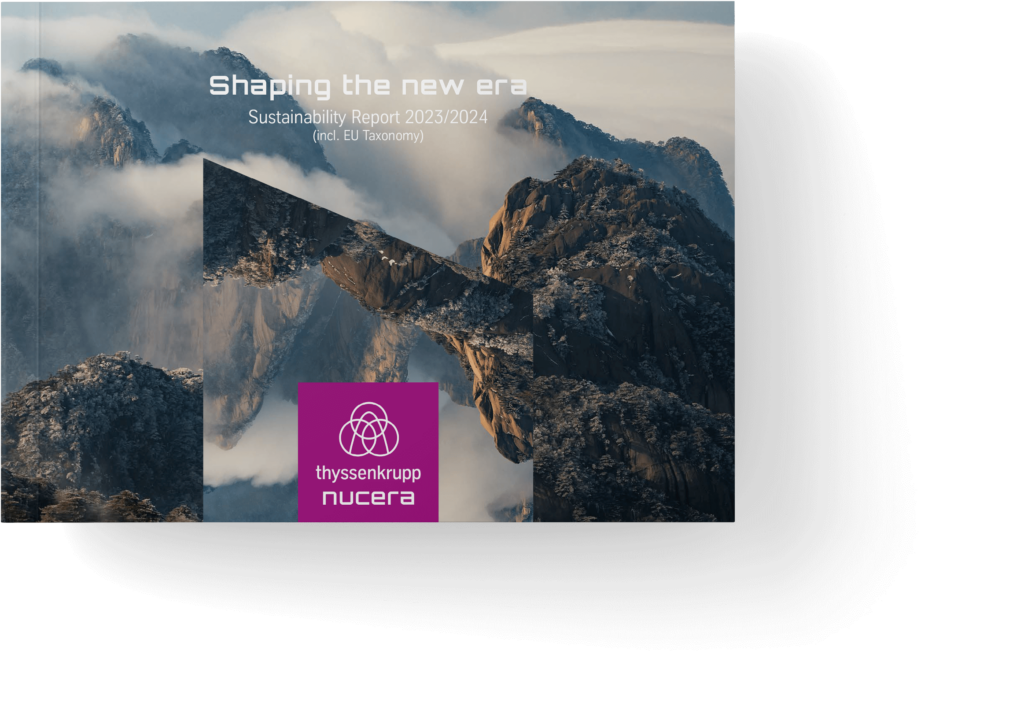
Last Update: December 17, 2024
Sustainability Report 2023/2024
(incl. EU Taxonomy)

